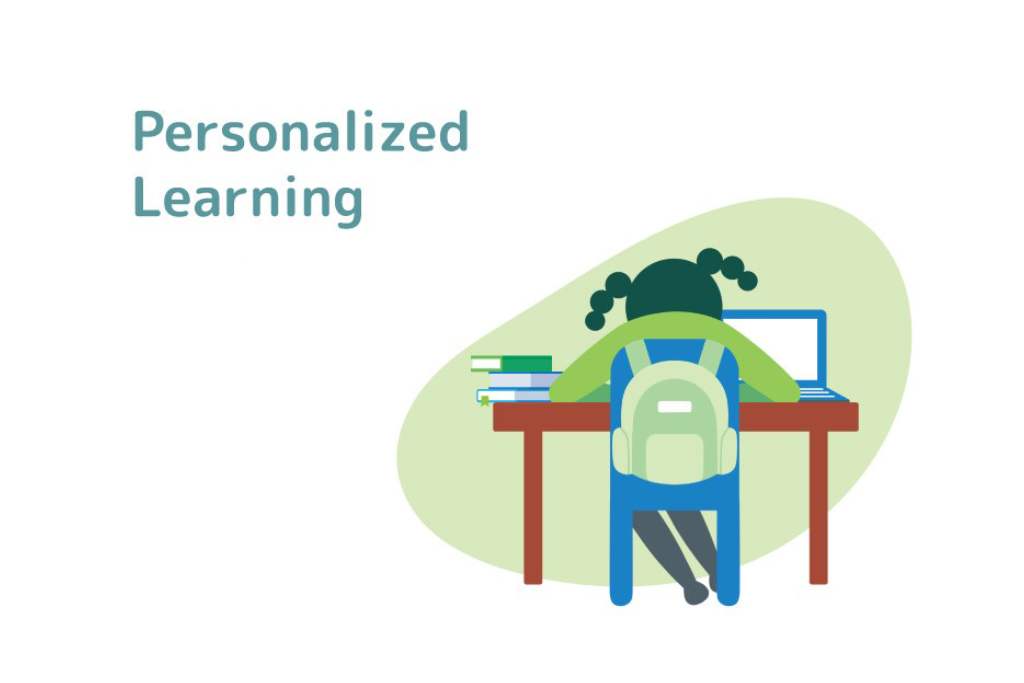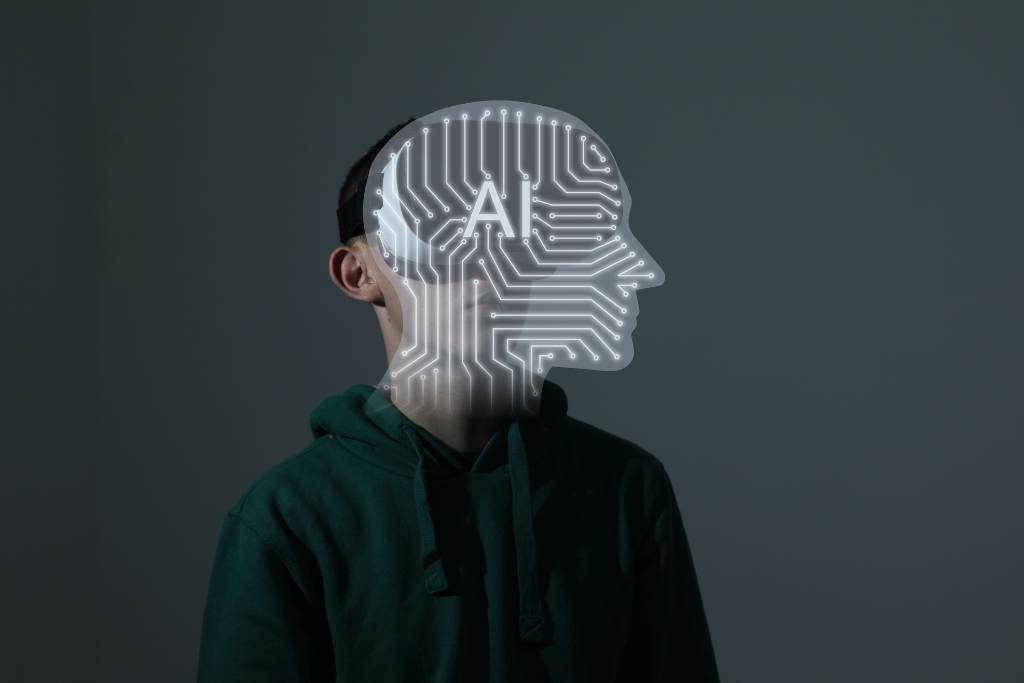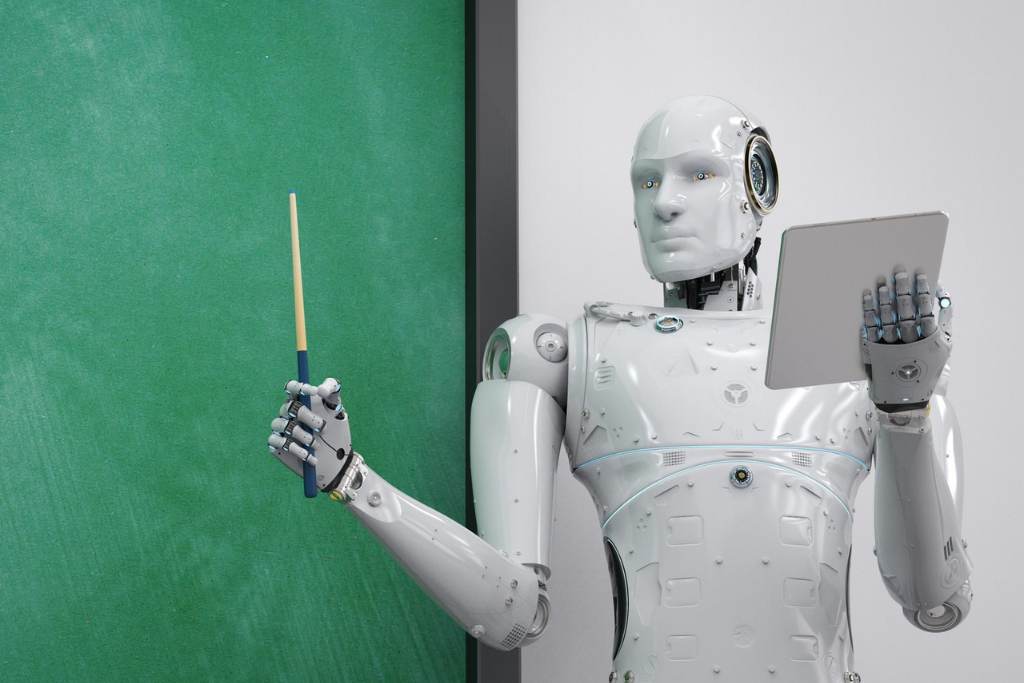AI is reinventing education by personalizing and innovating learning. AI-powered tools give pupils a wealth of educational resources tailored to their learning preferences. AI-powered tutoring systems monitor real-time student performance data and identify areas of strength and weakness, giving educators real-time insight into each child and helping them modify lesson plans. Chatbots answer student questions and give assignment feedback promptly, giving teachers and students more options to communicate outside the classroom. AI-graded tests save teachers the time they could spend teaching or coaching. VR technology lets pupils explore distant regions and study intricate scientific phenomena. AI has created a new era of education where cutting-edge technologies boost tailored learning experiences, giving educators and students unmatched opportunities for growth and knowledge acquisition.
Personalized Learning
Many education technology products incorporate AI capabilities into them, including automation, smart cameras, and intelligent personal assistants. These technologies make our lives easier by performing frequent and high-volume tasks that would exhaust humans over time.

AI can assist teachers in tailoring learning to each student’s individual needs, whether that means delivering this specialized instruction asynchronously or synchronously. It enables students to see their progress online from anywhere at any time and enables teachers to provide specific feedback based on analytics data.
Rand’s research demonstrated that students utilizing personalized learning strategies experienced greater academic gains than similar students in traditional schools; however, the research behind such efforts remains murky and dependent on local circumstances, making broad conclusions difficult. Therefore, it is crucial that educators employ practices that involve more teacher-student interactions; examples could include project-based learning or a curriculum that caters to students’ interests.
Data-Based Feedback
Some AI enthusiasts predict a future where robots outshout human intelligence, while others worry that AI will increase inequality between rich and poor. Although these concerns are valid, AI is already revolutionizing education in numerous ways.

Teachers can leverage artificial intelligence (AI) to give their students more tailored feedback. AI can detect common errors in student data analysis and suggest remediation strategies to help improve learning, leading to improved academic performance overall.
AI can assist schools in cutting costs by automating routine tasks and providing support services remotely for students. AI chatbots offer advice to students regarding financial aid, tuition payments, and other matters; virtual assistants offer course materials and tutoring assistance 24 hours per day/7 days a week; translators help overcome language barriers while AI translation services make translation easy and accessible; AI also enables underprivileged children from disadvantaged backgrounds to access higher education with career-relevant skills gained by AI translators.
Automated Processes
While AI should never replace human teachers, technology can make classroom environments more effective and engaging by automating administrative processes such as grading assignments and assessments.
As a result, educators can spend more time engaging directly with their students rather than completing administrative tasks, which is particularly beneficial in schools with limited resources.

Natural language processing tools can also aid students in honing their writing abilities by offering constructive criticism on grammar and style, as well as assisting with creating more engaging content such as blogs, speeches, or essays.
Dora Demszky, assistant professor of education data science, also addressed how artificial intelligence (AI) could serve as virtual practice students for teachers. By simulating an AI student, teachers could receive instantaneous feedback and suggestions based on expert pedagogy.
Increased Efficiency
While AI may seem to some as a potential replacement for teachers, in reality, it will simply augment their toolboxes with additional capabilities. Instead of taking away time dedicated to administrative burdens for educators, this technology will free them up, so they can focus on doing what they do best: teaching their students to understand the world.

Universities must lead in identifying the social, ethical, and pedagogical challenges AI will pose to our future society. They should promote AI competency development within departments, as well as interdepartmental collaboration across disciplines to prepare the next generation for an AI-powered world.
AI-enabled chatbots such as ChatGPT can aid student admissions by screening out applicants who misrepresent themselves or embellish their academic background, matching students to universities based on academic and extracurricular fit, reducing admissions workloads, and improving retention rates. In addition, AI-powered learning platforms translate course content into multiple languages, so students who cannot attend classes in their native tongue can still benefit. However, as AI continues to advance, questions arise about its potential impact on human civilization. Some may wonder, “Can Artificial Intelligence Take Over Human Civilization?” It is crucial to strike a balance between harnessing AI’s potential benefits in education while carefully considering the ethical and societal implications to ensure a responsible and sustainable integration of this technology.